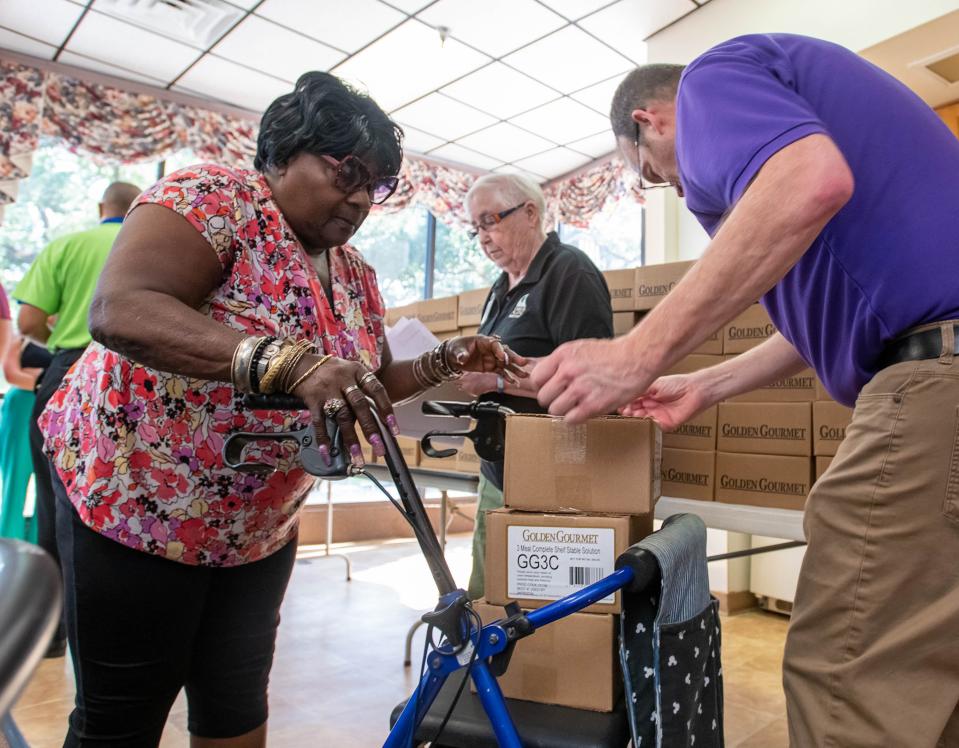Local counselor: The importance of social connection and how to nurture your relationships
July is Social Wellness Month, and the importance of social connection is highlighted in the U.S. surgeon general’s recent declaration that we are in a loneliness epidemic. In this recent report, one out of two Americans reported experiencing loneliness before the COVID-19 pandemic. The report also found that loneliness leads to detrimental health effects similar to that of smoking 15 cigarettes a day, obesity or physical inactivity.
It is hard to find a person who has not felt lonely at some point in their lifetime, especially as we all recover from the isolating effects of the pandemic and increasing social divide.
The antidote to loneliness is exactly what the month of July is honoring: fostering social connection. Social wellness and connection are more important now than ever. As human beings, our brain is wired for social connection; it is both how we survive and how we thrive. Building a strong support system of family and friends means we don’t need to take on life challenges alone and helps buffer us from feelings of anxiety and depression.
Blue Zones Project: Jacksonville poised to become the ‘City for Well-Being'
Mark Woods: Six months into pandemic, we crave more than a Zoom connection
Letters: Enough with the drama, it's not that difficult to keep Social Security funded
Social connection gives us access to the healing power of kindness, shared joy and encouragement that help us lead healthier, happier and more meaningful lives. Human connection can be incredibly powerful.
As a mental health counselor, I work with many people who struggle to build, grow and nurture their social network. Below are some suggestions to nurture your current relationships and grow your social network.
Here are a few ways to nurture current relationships:
Take time each day to reach out to a friend or family member.
Minimize distractions during conversations to increase the quality of the time you spend with others. For instance, don’t check your phone during meals with friends, important conversations or family time.
Perform an act of service such as making your neighbor a meal or baked goods, sending a letter to a grandparent, offering to dog sit or walk a friend’s dog, babysitting for a friend or helping a neighbor with their lawn.
Dedicate quality time to spend with your loved ones. Engage in shared activities, go for walks, have meals together or simply enjoy each other's company. Quality time fosters deeper connections and creates lasting memories.
Express gratitude and appreciation for the presence and impact of those in your support system. Acknowledge their contributions, offer compliments and be attentive to their needs. Small gestures of appreciation go a long way in strengthening bonds and improving relationship satisfaction.
Express yourself authentically. Reflect the core values of connection in how you approach others in conversation and through the actions you take. Key questions to ask yourself when considering your interactions with others include: How might kindness change this situation? What would it look like to treat others with respect? How can I be of service? How can I reflect my concern for and commitment to others?

In addition to nurturing current relationships, building new relationships is a big part of social connection as well. Here are a few strategies to build your social network of friends:
Volunteer. Seek out opportunities to serve and support others. There are numerous opportunities to volunteer at local schools, homeless shelters, food banks, national and local parks, beach clean-ups, community neighborhood associations or the humane society. Not only will you contribute to a cause you care about, but you'll also meet people who share your values and sense of community.
Introduce yourself to your neighbors. Consider delivering baked goods with an invitation for a neighborhood get-together.
Participate in social and community groups. There are a wide variety of groups of many different interests throughout town. Consider attending a recreational adult sports league, a specialty fitness center, a religious or cultural community center, a hobby group (the local library has many different gatherings and groups), professional organizations, alumni groups and community service groups to foster a sense of belonging, meaning and purpose.
Use online formats (such as Meet Up, Facebook, Bumble BFF or Humanize) to coordinate or access groups of people of similar interests and roles.
Create or participate in a social committee at your workplace or plan a post work get together.
Make time for civic engagement. This could include being a positive and constructive participant in political discourse and gatherings (e.g., town halls, school board meetings, local government hearings).
Take an adult community education class through Duval County Public Schools and introduce yourself to another classmate.
If you are struggling with feelings of loneliness or isolation, you are not alone. Reach out to a supportive family member, friend, counselor, health care provider or the 988 crisis line.

Rachel Block-Stewart is a licensed mental health counselor with Thriveworks in Jacksonville. She specializes in relationships, stress, anxiety and coping skills.
This guest column is the opinion of the author and does not necessarily represent the views of the Times-Union. We welcome a diversity of opinions.
This article originally appeared on Florida Times-Union: Loneliness can be just as harmful to well-being as smoking or obesity